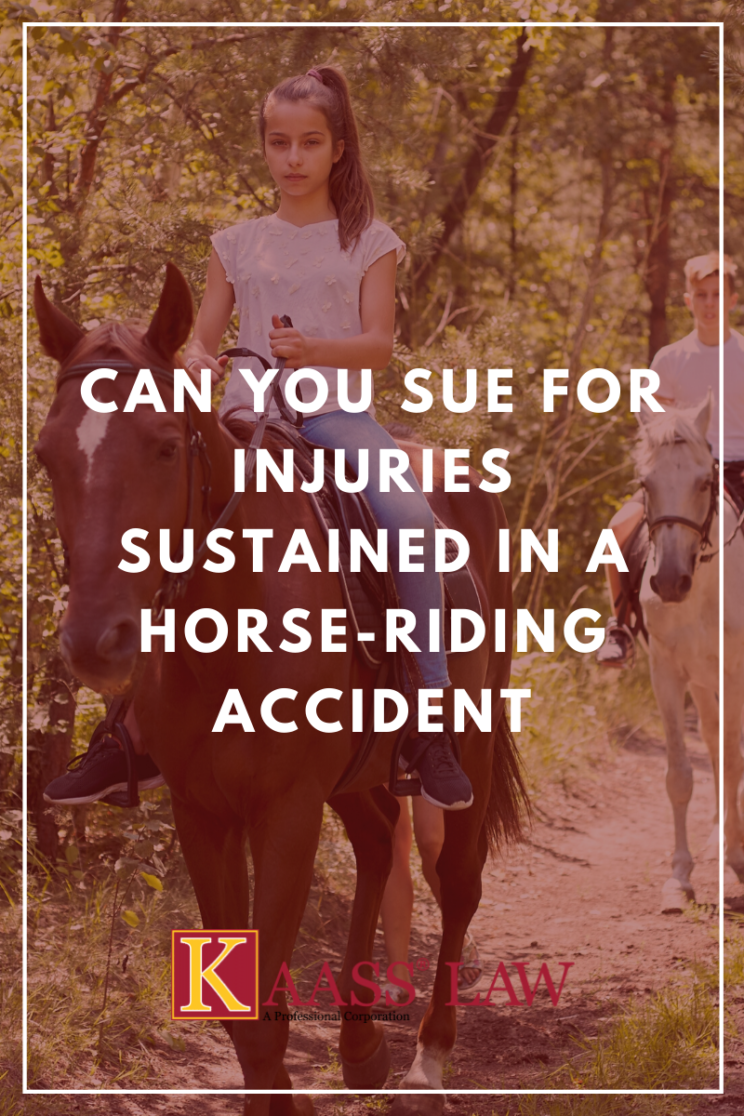In California, you can sue for injuries sustained in a horse-riding equestrian accident. An injured party may be entitled to damages, such as medical expenses and pain and suffering.
Who is Liable for a Horse-Riding Accident?
Liability for an injury sustained in a horse-riding accident may attach to:
- horse trainer;
- the property owner where the accident occurred;
- the horse owner;
- the riding club;
- the company that made defective riding equipment (products liability)
- the company that operates the horse-riding/horse-back riding service and/or
- other riders, etc.
Common Causes of Horseback Riding and Equestrian Accidents
Common causes of action in horseback riding and equestrian accidents include the following:
General Negligence: Often times horseback riding accidents and injuries occurs due to the equestrian club and or riding agency’s negligent actions. Common negligent action on part of the equestrian club includes failure to the instructor to train new riders, failing to properly train a horse, or failure to properly fasten saddles and girths to the horse.
Product Liability Claim: Horseback riders can sustain injuries due to the use of defective riding equipment such as defective saddles, defective riding helmets, defective girth, and bridles. In order to succeed on a product liability claim, the plaintiff must prove that the existence of a defect in the product substantially increased the risk of harm to the end-user. A plaintiff may prove the existence of a defect in a product in 3 ways. (1) Defect in the manufacturing process of the product; (2) Defect in the product’s initial design; and (3) Failure to warn.
Premises Liability: Injuries sustained in horse-riding accidents can be caused by defective riding trail conditions including. Under premises liability, owners and operators of the property/land are liable for any injuries caused by known and knowable dangers.
What Compensation is Available in a Horse-Riding Accident
If someone was injured in a horse-riding accident, they may seek compensation for the following:
- Medical expenses incurred resulting from the accident;
- All future medical and rehabilitation expenses;
- Lost wages and salaries including loss of future income;
- Non-economic damage, such as pain and suffering
The statute of limitation for filing a civil lawsuit in a horse-riding accident is 2 years.
Personal Injury Attorney
If you or a loved one has been injured in a horse-riding accident, we invite you to contact our personal injury attorney at (310) 943-1171 for a free consultation and case review.

